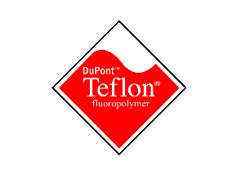Study of Teflon Chemical Expanded
- Home
- News
-
Study of Teflon Chemical Expanded
Parkersburg, WV, May 1, 2007--Researchers will ask 200 Ohio and West Virginia residents to participate in a new health study to determine how long a chemical used to produce Teflon remains in their bodies.
Randomly selected residents who receive their drinking water from the Lubeck Public Service District in West Virginia and Little Hocking Water Association in Ohio will be asked to submit blood samples over the next four years, according to a court-appointed science panel charged with studying possible health affects caused by the chemical ammonium perfluorooctanoate, known as C8.
The study announced Monday is one of 10 being conducted as a follow-up to a health screening of up to 70,000 Mid-Ohio Valley residents who were part of a class-action lawsuit that claimed C8 releases from DuPont Co.'s Washington Works Plant contaminated their water supplies.
DuPont is funding the health screening, and agreed to install carbon filters at six water district filtration plants to screen out the chemical. Filters won't be installed at Little Hocking and Lubeck until later this year. DuPont has installed filters at water plants in Belpre, Tuppers Plains and Pomery, all in Ohio.
Plans to install the filters at filtration plants in Letart and Crab Creek are progressing, DuPont spokeswoman Robin Ollis said Monday. Filters will not be installed at a third site in the county after C8 levels fell below detection limits, she said.
Over the next four years, residents living in the Little Hocking and Lubeck water districts will be paid to provide eight blood samples. The study will look at how long it takes for C8 to leave their bodies once it has been filtered out of their water.
Though used since World War II, C8's long-term effects on humans are unknown. DuPont maintains the chemical is not hazardous to human health. A U.S. Environmental Protection Agency science panel has said C8 is a "likely" carcinogenic.
"This work by the independent science panel will provide the first reliable answer regarding how long the chemical C8 stays in the blood of local residents," said Harry Deitzler, a Charleston lawyer who represented the residents in the lawsuit.
The three-member science panel is reviewing the health histories and blood samples of those residents who participated in the health screening. The panel will conduct 10 separate studies using that information and additional information gathered from project participants.
The 10 studies will look at health issues such as cancer, heart disease, stroke, diabetes and aneurysm, immune function, liver and hormone disorders, and birth outcomes. The study announced Monday will be led by science panel member Kyle Steenland, a professor at Emory University's School of Public Health. Steenland is one of three panel members.
"DuPont has supported and continues to support the research work of the C8 science panel," said company spokesman Dan Turner.
